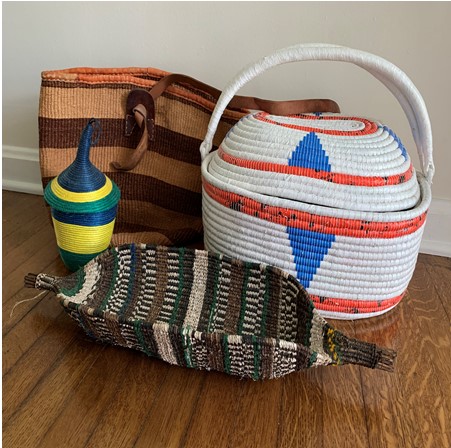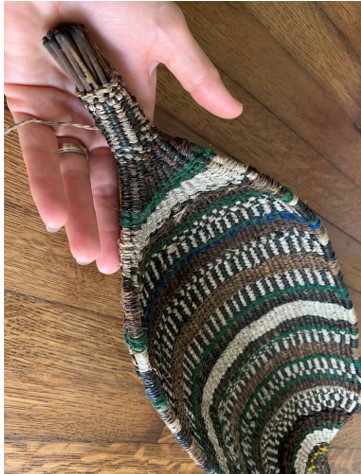A Letter from Shelvis and Nancy Smith-Mather, serving in South Sudan and the United Kingdom, currently in the United States
Summer 2021
Write to Shelvis Smith-Mather
Write to Nancy Smith-Mather
Individuals: Give online to E200316 for Shelvis and Nancy’s sending and support
Individuals: Give online to 052032 for RECONCILE
Congregations: Give to D507554 for Shelvis and Nancy’s sending and support
Churches are asked to send donations through your congregation’s normal receiving site (this is usually your presbytery)
Subscribe to our co-worker letters
Dear friends,
The U.S. Embassy in South Sudan sent out a warning on August 26, 2021. The message shared information about protests planned for August 30, cautioning U.S. citizens to avoid large crowds. The protestors intended to demonstrate as a statement against the current government. In the note, the embassy included a general reminder that: “the travel advisory for South Sudan is Level 4: Do Not Travel due to COVID-19, crime, kidnapping, and armed conflict.”
While I have received similar advisories for many years, on this particular day, it drew out a unique response in me.
There is always heartbreak for the ongoing conflict and turmoil. This time, however, the repetitiveness of the genre, one of violence and strife, increased my internal struggle. Much more could be told about South Sudan.
I would like to add something; to show more from what I’ve seen firsthand.
I remember sitting in the pews at the Anglican Cathedral in Yei, South Sudan witnessing around 75 babies sprinkled with water on a single Baptism Sunday. Inside the church walls, the air filled with singing, the stirring of children and a palpable, excited thankfulness. All of which created a holy encounter.
Parents attended weeks of evening classes at church to prepare for the baptism of their child. Yet, when the appointed day came, they were not the ones holding their baby at the front of the congregation. The godparents, whom the parents selected to help raise their child in the faith, place the infant in the priest’s hands. The parents stand a few steps behind, glowing in the joy-filled moment, a moment which acknowledges the loving community that surrounds their child.
South Sudanese should also be known for the ways they build community and for their love of children.I’d like to share another depiction of the beauty in South Sudan.
Recently, we unpacked our items kept in storage in Decatur, Georgia. In the trunks, we uncovered a collection of baskets. The baskets from South Sudan came to us as gifts. One was woven together in a very rural, hard to reach community called Pochalla. While a geographically gorgeous place, it would not be easy for me to live in Pochalla. Most women spend much of their days doing the hard labor of providing food, water and care for their families.
Yet, someone sat for hours weaving a basket. Colorful strings created patterns around a loom made of sticks. The basket was then placed in the hands of a guest, in my hands, continuing the long-standing tradition of honoring visitors.
Hospitality is something for which South Sudanese should be globally renowned.
Just one more story to accompany the others.
We left South Sudan in July 2016, to deliver our third child, Nicole, in the U.S. Once we arrived in the States, the Civil War resurged. Most of our neighbors in Yei fled across the border to refugee camps in Uganda. Consequently, in 2017 we moved to Uganda to work in those refugee camps. Shortly after our arrival, we bumped into a South Sudanese pastor and alumni of the RECONCILE Peace Institute.
“So, this is the child we have been praying for,” Rev. Elizabeth Choul said with a smile.
While war raged through South Sudan, displacing millions, Rev. Elizabeth received news that our six-week-old child was seriously ill in the U.S. So, she prayed for Nicole. For a baby whom she did not yet know, she prayed. The Presbyterian churches formed by South Sudanese pastors in the refugee camps prayed for her. The RECONCILE Peace Institute alumni spread across the camps with different faith traditions and backgrounds prayed for her. During their country’s painful unrest, they prayed for her. When she met Nicole, Rev. Elizabeth gave her a South Sudanese name, a name meaning “prayer.”
Maybe prayer acts like the stick loom, holding the basket of South Sudanese society together; often going unseen. The loom ensures the weak parts do not unravel the whole; that there is always something for hope to lean on when it becomes tired and overwhelmed.
The prayers, the baskets and the loving community reach across borders to me. They move me. And shape me. They give me an opportunity to complicate the story often used to describe South Sudan. I am so humbled and grateful to do so.
Living in the U.S. during the pandemic, we have also tried to add some texture to the way “missionaries” are understood. This is our first time to live in Charleston, so we are making new friendships here. Describing our work to others often widens their perspectives on what missionaries “do.”
Shelvis often offers an unexpected nuance to “mission work” when he explains his years of service alongside South Sudanese peacebuilders. He emphasizes that the peace efforts are initiated by South Sudanese Christians for South Sudanese challenges. This mission work might come across as unconventional, once Shelvis explains that the peacebuilding work and his research on South Sudan, might ultimately offer strategies for reconciling division in the U.S.
Partnering with churches in South Sudan gives us opportunities for mutual learning and encouragement. It allows us to add to the narrative of international mission work. We are humbled and grateful to do so.
Thank you so much for your support, encouragement and prayers which allow us to be a part of ministries which we love. We feel honored to be on this journey together with you and with our South Sudanese siblings. Thank you.
Nancy and Shelvis
Please read the following letter from Sara P. Lisherness, the interim director of World Mission:
Dear partners in God’s mission,
I don’t know about you, but daily my heart grows heavier. News about the pandemic, wars, wildfires, gun violence, racism, earthquakes and hurricanes cloud my vision. It’s hard to see hope; our world is in a fog. Yet we trust that God’s light and love transcend the brokenness of this time.
God is at work transforming the world, and you, through your prayers, partnership and encouragement, are helping us share this good news. Thank you for your faithful and gracious support of our mission personnel.
How can we see through the fog? What will the church be after the pandemic? Could it be that God is doing “a new thing” and is inviting us to perceive it? Through all the uncertainty we know that God’s steadfast love and care for all creation will prevail and that God’s Spirit is at work in each of us.
We all have an integral part to play in fulfilling God’s mission. As we seek to grow together in faithfulness there are three important steps I invite you to take in supporting our shared commitments to God’s mission:
Give – Consider making a year-end financial contribution for the sending and support of our mission personnel. Your support helps mission personnel accompany global partners as together they share the light of God’s love and justice around the world. Invite your session to include support for mission personnel in its annual budget planning.
Act – Visit The Mission Yearbook for Prayer and Study to delve deeper into the work God is doing through the PC(USA) and its partners in ministry around the globe: pcusa.org/missionyearbook.
Pray – Include our mission personnel, our global partners, and our common commitments to share God’s grace, love, mercy and justice in your daily prayers.
Thank you for your faithfulness to God’s mission through the Presbyterian Church. It is my prayer that you will continue to support this work with your prayers, partnership, and financial gifts in the coming year. We hope you will join us and our partners in shining a beacon of hope throughout the world.
In the light of hope,
Sara P. Lisherness, Interim Director
World Mission
Presbyterian Mission Agency
Presbyterian Church (U.S.A.)
To give please visit https://bit.ly/PCUSAmission
You are the light of the world. A city built on a hill cannot be hid. No one after lighting a lamp puts it under the bushel basket, but on the lampstand, and it gives light to all in the house. In the same way, let your light shine before others, so that they may see your good works and give glory to your Father in heaven. Matthew 5:14-16
![]() You may freely reuse and distribute this article in its entirety for non-commercial purposes in any medium. Please include author attribution, photography credits, and a link to the original article. This work is licensed under a Creative Commons Attribution-NonCommercial-NoDeratives 4.0 International License.
You may freely reuse and distribute this article in its entirety for non-commercial purposes in any medium. Please include author attribution, photography credits, and a link to the original article. This work is licensed under a Creative Commons Attribution-NonCommercial-NoDeratives 4.0 International License.

